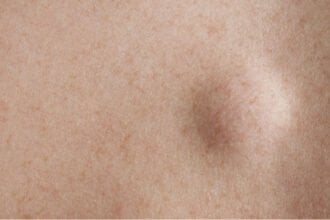Periodontal disease is a massive problem facing Americans of all ages. According to a study that used data from 2009 and 2010, nearly 65,000,000 American adults have at least a mild form of periodontitis. This is nearly half of the adult population. The figure is much higher for older adults. Almost three out of four people over the age of 65 have the disease. Periodontal disease is a serious problem. As it progresses, it can cause tooth loss and even deterioration of the jaw bone. You must take all reasonable steps to mitigate these risks. Fortunately, there are a number of simple steps that you can take. Here are some tips that dental clinic DentistsofLasVegas (run by Dr. Chin and Dr. Pharar) shared with us.
Use a soft toothbrush with more bristles
It is surprising how many low-quality toothbrushes there are on the market. Some of them have too few bristles. This makes it difficult to scrape away plaque. You will find it is much easier to clean your teeth by using a toothbrush with a fuller head of bristles. You also need to consider using a softer toothbrush. Many people use harder toothbrushes, because they seem like they can scrape plaque away easier. However, the benefits of removing plaque are not nearly as high as you would think. To make matters worse, there are some significant risks with using hard toothbrushes. The biggest problem is that they can flame and damage the gums. Your gums might proceed over time, which will make them at a greater risk of getting periodontal disease. Using a soft toothbrush with plenty of bristles is the best approach to take.
Use fluoride floss before bed every night
Flossing is essential to your oral hygiene. If food collects between your teeth and begins to decay, it will gradually infect your gums. This significantly increases the risk of getting any type of gum disease. If possible, you should consider flossing at least twice a day. However, it is most important to floss in the evening before you go to sleep. This prevents food from decaying in the evening while you were asleep and your saliva count has declined. You should also consider using floss that has fluoride. This floss will directly apply fluoride to the edges of your teeth, which will help restore lost mineral deposits that would otherwise lead to cavities. Since cavities play in important role in the formation of periodontal disease, this is an important tip that you should keep in mind.
Quit smoking
The Center for Disease control has pointed out that there is a significant correlation between smoking and periodontal disease. This finding is echoed by the experts at The American Dental Hygienist Association?s research. They found that patients that smoke half a pack of cigarettes a day are three times more likely to develop this form of gum disease than people that don?t smoke at all.
Consume foods that cause less inflammation
There is a very strong correlation between diabetes and periodontal disease. In fact, a study in India found that diabetes increases the risk of getting periodontal disease by 50%. This is because diabetes is an auto inflammatory disease. It stands to reason that consuming foods that cause inflammation will have a similar affect. Try to cut back on foods that are rich and processed chemicals, simple carbohydrates, and sugar. This could help reduce your chances of getting gum disease.
Take Reasonable Steps to Fight Periodontal Disease
Periodontal disease is a very serious problem. You need to take every possible precaution to prevent it.










